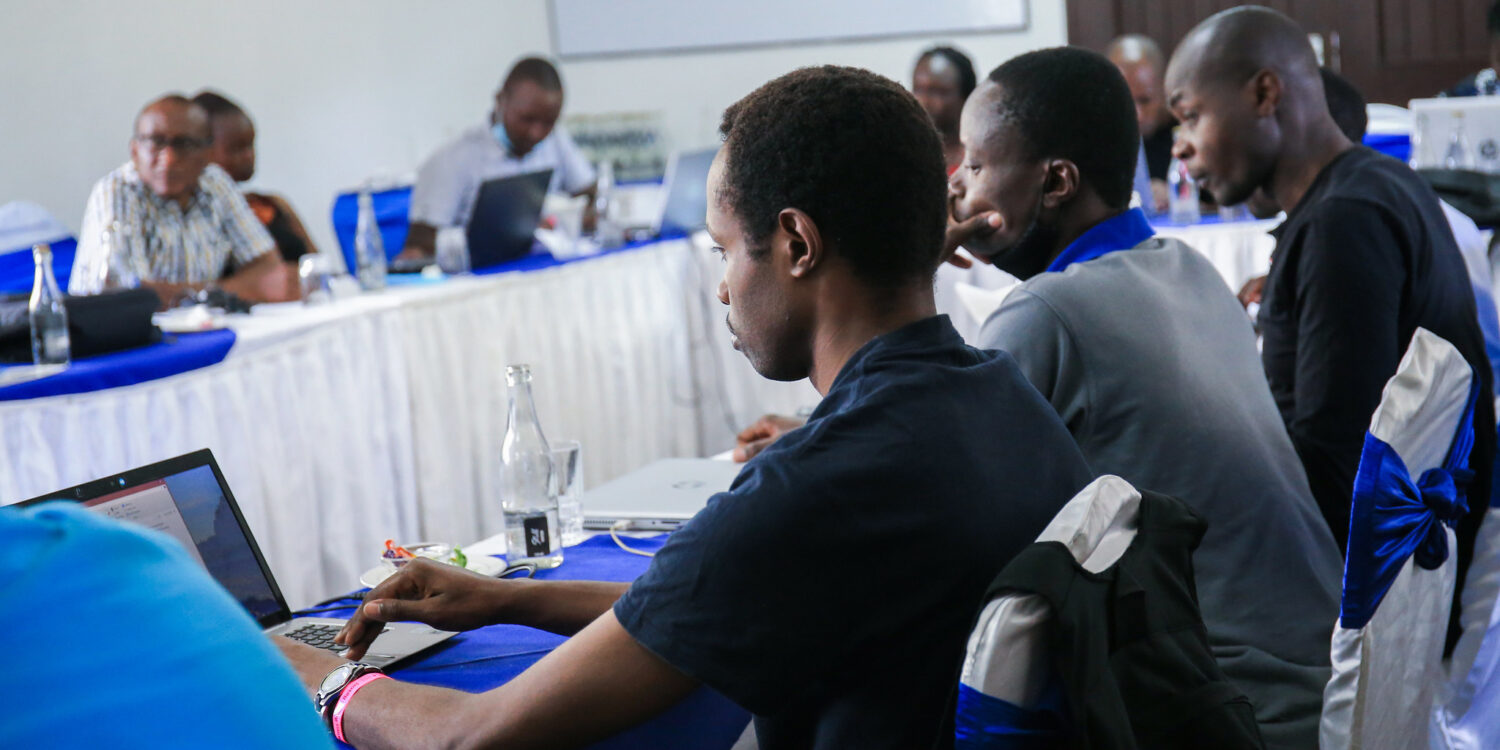
It is no secret that we are passionate about citizen generated data. We believe that active citizens have a lot of power to influence governments to bring about the change they want. We started out in 2015, working with local communities to collect data from every household as a means to understanding their needs and priorities. We have seen that when citizens know the power of data, inspiring action from their leadership is the default next step, leading to success stories of implementation of projects that meet the needs of the community.
One of these success stories is our work in Lanet-Umoja location, which was headed by Chief Francis Kariuki, where citizen generated data led to real change in the community’s life.After the citizens collected data in the community, it emerged that a priority need for the citizens was a health centre, and this was constructed and is now up and running. They understood that they had a challenge with clean drinking water and this enabled them to better engage organisations that were working there to make sure that there is a clean water filter in every home.
These successes have motivated us to continue working at greater scale – first at sub-county level (multiple locations) and now, we have scaled up the work at county level. We are now working with the Elgeyo Marakwet County government to collect administrative data from each of their 101,000 households.
We have been working with the county since 2019 to establish a data ecosystem that enables the government to harness both government and citizen data to better allocate resources and sustainably develop the county according to each village’s needs.
It was in this regard that on 15th and 16th October 2020, Elgeyo Marakwet county officials invited us and the Open Governance Institute (OGI) to a workshop to participate in the design of the tool in Ukunda, Kwale County.
Elgeyo Marakwet has been a signatory to the Open Government Partnership since 2016 and is aiming at doing another first in terms of leading citizen engagement by using data in driving public participation and engagement. In addition, EMC was the first county to implement a fully-functioning data desk – to collect, compile, analyze and disseminate the county’s data – with our support through the World Bank, and, as a county, they continue to prioritise open data as a key function in service delivery to their citizens. One of the challenges, however, remains how to collect more disaggregated data and ensure that the data remains updated as well as ensuring that the more difficult data sets required to monitor the SDGs indicators are not missed.
The data collection tool by Elgeyo Marakwet county will help in the collection and capturing of data at the household level. This unique approach will be vital to the county achieving and keeping up with their development priorities – in line with the Sustainable Development Goals (SDGs).
Sustainability is key to the work we do at the Open Institute. Consequently, the partnership with The Open Governance Institute (with the support of GIZ Kenya’s Good Governance Programme) will be fundamental in ensuring that the skills and capacities that are developed during the exercise will remain in the county to ensure scale.
The Open Governance Institute will support the Elgeyo Marakwet county government to collect data at the household level. Some of their tasks will include training and coordinating community health volunteers from four (4) wards (Kapyego, Arror, Tambach and Kaptarakwa) to collect and record data.
We are looking forward to the coming weeks where we will be stationed in Elgeyo Marakwet county providing technical support to OGI and documenting the citizen generated data collection exercise.
Follow our social media pages to stay updated on the latest progress of the citizen-generated data collection series in Elgeyo Marakwet County.













